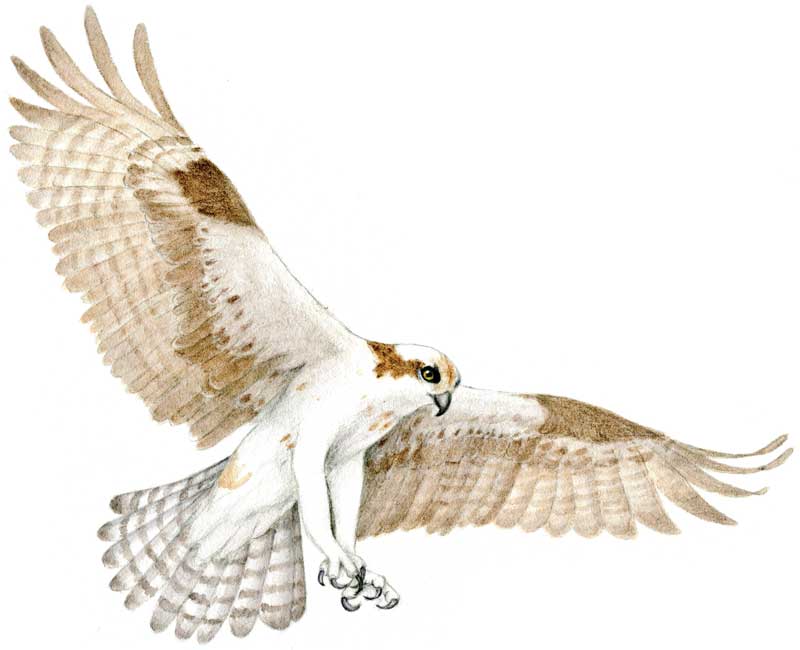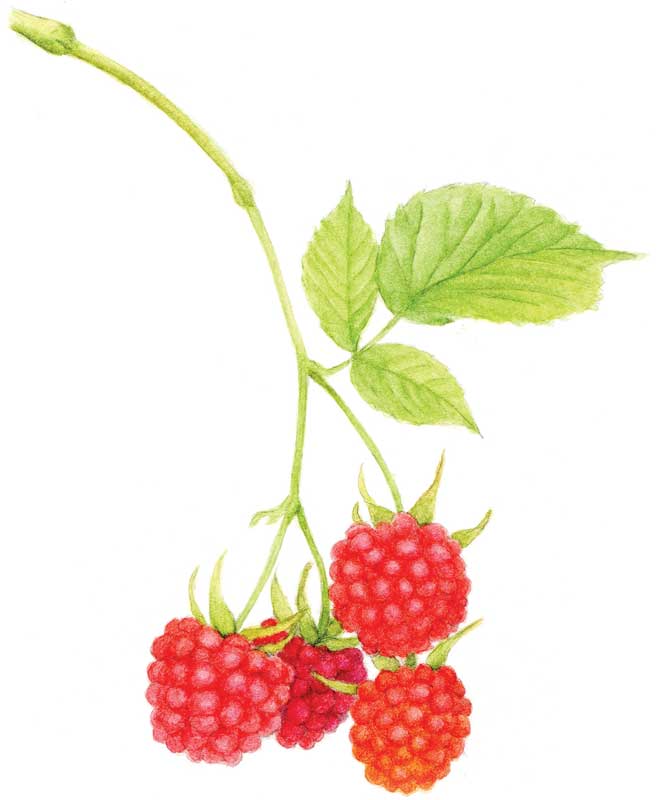—George Washington Carver
Rob McCall, naturalist, folk musician, artist, author, and ordained minister died on April 21, 2023, at his Brooklin home. He was 79 years old. From 1986 until his retirement in 2014, Rob was pastor of the First Congregational Church in Blue Hill, and from 1992 until his death the author and producer of the Awanadjo Almanack. His timeless observations of the natural and spiritual worlds will continue to appear in these pages for the near term—based on writings from his extensive archives. We are grateful for his voice, vision, deep well of knowledge, and the encouragement to go out and see for ourselves.
Dear Friends:
The French have an expression “plus ça change, plus la meme chose” meaning “the more things change, the more they stay the same.” This could be a fine motto for an almanac, which shows change and changelessness. We have a collection of almanacs going back more than 200 years making it easy to see this phenomenon. Our little contribution to this field, the Awanadjo Almanack, marked 30 years of publication in 2022. To flavor commentary about current events, weather, and other timely matters we often find timeless observations of flora and fauna from hundreds of vintage almanacks in the archives, highlighting the theme of change and changelessness. One thing that does not change is our devotion to feeling at home in Nature and being caretakers of the whole Creation.
Calendar events, July
We may think that July is remarkable only for the 4th, but listen to this: July 12 is generally accepted as the birthday of the remarkable George Washington Carver in 1864, about whom more later. July 14, 1789 was Bastille Day, “Fete Nationale” when peasants stormed and seized the old Bastille prison where the king was holding political prisoners as well as a sizable cache of weapons. This was the opening volley of the French Revolution. July 15 is Saint Swithin’s Day. Saint Swithin of Winchester [d. 862] loved the rain and insisted on being buried outdoors under the sky. In 971, when his remains were moved into the cathedral named for him, legend says the late saint showed his displeasure by sending 40 days of rain. Since then, if it rains on July 15, locals expect plenty more. The saint is traditionally invoked to bring or stop rain—as in, “We could use a little rain here, by Swithin.”
 Illustration by Candice Hutchison
Illustration by Candice Hutchison
Natural events
I have occasionally been visited by the spirit of George Washington Carver, the great early 20th century botanist, wandering unbidden by my thoughts. But it was not until researching a July edition of the Almanack that I discovered Carver’s birthday is celebrated on July 12. This is what some would call a “coincidence,” as though that could explain such visitations. Carver was born in 1864 into slavery [no birth certificate], orphaned early, and suffered from diseases of childhood that weakened his constitution for life. Fortunately for all of us, instead of being forced to labor in the fields, he was allowed to wander. “I wanted to know the name of every stone and flower and insect and bird and beast. I wanted to know where it got its color, where it got its life—but there was no one to tell me,” said Carver. “Reading about nature is fine, but if a person walks in the woods and listens carefully, he can learn more than what is in books, for [the woods] speak with the voice of God.” Carver saw no conflict between science and religion, resulting in an uncanny ability to discern the spirit of plants and to derive multiple practical products from peanuts, soybeans, sweet potatoes, and others. “Our creator is the same and never changes despite the names given Him by people here and in all parts of the world,” said Carver. “Even if we gave Him no name at all, He would still be there, within us, waiting to give us good on this earth.”
Freshwater report
Your commentator ventured a mile and a half off the paved roads and over the blueberry barrens—and 10,000 years back in time—to paddle a hidden jewel of a pond, there to enjoy some peaceful solitude, listen to the green frogs clearing their throats and the calls of loons and ospreys, and to see the face of the Divine. Several rare wild flowers were admired including Rose Pogonia, a delicate pink orchid, and a wild wood lily.
Rank opinion
Skeptic, cynic, scientist or seeker, it does not matter. You can visit the holy in the great green cathedral right outside your door.
Summer odds & ends
Those green frogs and bullfrogs call from the ponds while snapping turtles ever so slowly cross the roads seeking suitable places to lay their eggs. Give snappers the right of way; they have earned it by being here first, by several million years.
A pleasant seasonal visitor is the chimney swift. They can be recognized by their twittering, circling flight and their crescent-shaped wings as they sickle through the sky to dive recklessly down the chimney. They nest in stone and brick chimneys and there raise their young. Swifts are worth their weight in bug-catching, snatching thousands of mosquitoes and flies from the evening skies every night. You might remember this before you start a fire in the stove or fireplace on a cool night.
We offer a tribute to our beloved summer visitors, the seals and whales. It is remarkable how recently we attacked these marvelous mammals on sight and hunted them to scarcity in the North Atlantic, while now we venture out on the waters, not to kill them, but to simply watch them and delight in the sight as they frolic with the joyous freedom of the deep: Hope for the whales equals hope for the humans.
 Illustration by Candice Hutchison
Illustration by Candice Hutchison
Natural events, August
The fields are now dominated by Queen Anne’s lace and black-eyed Susan. Many different varieties of goldenrod are coming into bloom as is ragweed with its filigreed leaves and green flowers causing hay fever miseries. Coincidentally, Eyebright, known for its anti-allergy properties, is coming into bloom along the pathways with tiny white flowers tinted with purple on short stems with even tinier dark green leaves.
Raspberries squish soft and sweet on the tongue, leaving seeds between the teeth to be teased out and eaten at our ease. Blackberries bulge. On blueberry barrens, rakers labor away, swinging their tines behind lines of white twine. Apples are sizing up and, like us, showing some red on their sunny shoulders.
The Dog Days could also be called the Cricket Days as these charming chanters enter their glistening adult stage and sing endless love songs to each other, reminding us that summer is far from over and there is still plenty of time for splendor in the grass. Yellow-banded grasshoppers click-clack back and forth in front of us as we amble and saunter through the fields.
Saltwater report
Just below the surface mackerel are fleeting and flashing silver flanks to the sun. Mackerel fishers line the docks and breakwaters casting again and again. Gulls, terns and cormorants throw back their heads as their catch slides slick down their throats. Sandpipers and yellow-legs strut along the shores, raising their feet as off a hot sidewalk, then fly off all piping together in squadrons skimming over the waves. Sweet, hot, moist summer: Wondrous summer.
Field and forest report
Out there, the young of this year’s generation of birds of the air and beasts of the field are coming into their own: raccoons, skunks, geese, loons, eiders, squirrels, hares, deer, moose, coyotes, wolves, and cougars. They leave the nests and the dens that their parents created for them. They set out on bright new wings and sleek young legs strengthened by the food given them by their parents. They are covered in soft fur and feathers fledged out smooth by the sustenance of their forebears. They go out to make new lives for themselves, building nests and lodges and homes of entirely bio-degradable materials, fully in tune with their environment. They gather food for themselves from entirely organic, renewable and sustainable resources. They throw nothing away and haul nothing to the dump. They do not litter or pollute. They leave utterly invisible carbon foot-prints. They bravely face the world as it is, not as they would wish it to be. They survive and thrive in perfect balance with the wisdom of the Creation, as they have for tens of thousands of generations. They have no selfish genes, only selfless genes. They have little knowledge, but much wisdom. They were here long before we came; and they will be here long after we are gone: unless we learn to get back to the garden.
Rank opinion
Humans have developed and evolved into magnificent creatures, the like of which has never been seen on earth. We have created a vast and magnificent variety of music, perhaps the most sublime of all human accomplishments. We have learned to heal ourselves and other creatures. We have learned to amplify food from common plants and animals. We have created and preserved countless volumes of literature, art and history over thousands of years. What we have not learned to do is to say No to ourselves, or to take No for an answer, even when it comes from the embedded wisdom of the collective Creation that some call “God.” Until we learn this, no matter how great our accomplishments, our survival will remain as uncertain as that of the youngest fledgling fluttering off on its first flight from the edge of the nest on bright and hopeful wings.
Seedpod to carry around with you
Swedish proverb: “Don’t let your sorrow come higher than your knees.”
That’s the Almanack for this time. But don’t take it from us—we’re no experts. Go out and see for yourself.
Yr. mst. humble & obd’nt servant,
Rob McCall
✮
Rob McCall (1944-2023) lived in Brooklin, Maine. This almanack is excerpted from his radio show on WERU FM, where several hundred episodes are available to stream from the online archives (weru.org).






